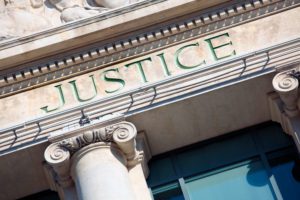 The Appellate Division concluded with the following in relevant part: Moreover, defendant did not voice to the trial judge any objection to a mistrial after partially losing his motion for dismissal with prejudice of all charges. Although his attorney did not affirmatively assent to the mistrial, the lack of an objection deprived the judge of an opportunity to consider the matter more deeply. In any event, there simply were no realistic options other than to end the trial and plan for a fresh start.
The Appellate Division concluded with the following in relevant part: Moreover, defendant did not voice to the trial judge any objection to a mistrial after partially losing his motion for dismissal with prejudice of all charges. Although his attorney did not affirmatively assent to the mistrial, the lack of an objection deprived the judge of an opportunity to consider the matter more deeply. In any event, there simply were no realistic options other than to end the trial and plan for a fresh start.
Defendant urges that he was entitled to a bar on re-prosecution because the judge found that the State’s misattribution of the blood samples, while not deliberate, was done in bad faith. But not all findings of the government’s bad faith inexorably preclude re-prosecution. The trial court must examine the comparative interests and equities on a case-by-case basis, just as it does in the analogous context of a Brady violation. See, e.g., State v. Brown (2019). The question is whether the State’s conduct is “so outrageous” as to “absolutely bar” it from involving judicial processes to obtain a conviction (quoting United States v. Russell, 411 U.S. 423, 431-32 (1973)).
In Brown, the State belatedly turned over nineteen reports to the defense one week into a jury trial, but there was no evidence of “willful misconduct.” Accordingly, the Supreme Court discerned no constitutional barrier to allowing the State to proceed with the case.
Here, although we surely do not condone the misattribution of the blood samples and the loss of defendant’s own vials, we likewise are satisfied that the mistakes were not sufficiently outrageous to bar the State completely from going forward with portions of the charges that are not dependent on defendant’s BAC level or proof of intoxication. The Double Jeopardy clauses do not mandate total dismissal here.
This decision will likely be appealed. The panel seemed to bend over backwards to find authority that would support their holding. One citation that will most often be used by and helpful to the defense concerns the typical presumption that jurors will abide by the Court’s instructions. This opinion confirms that there is authority to support the assertion that jurors do not always abide.
